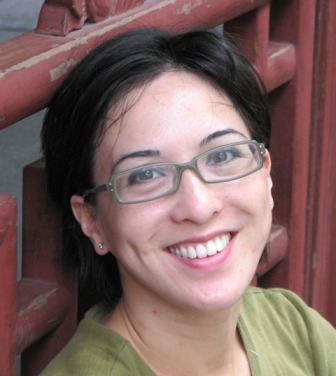We've spent much of the week fixing glasses, checking teeth, and getting shots before moving onto a new medical system. The things I like to put off until the last possible minute. Anyway, the other day KC and I went for 종합검사, which I will translate as "comprehensive tests" for now. Many companies in Korea offer these tests at reduced rates as part of their health benefits; ours was through our life insurance company (though you can also take them independently if you're willing to pay full price, which wasn't nearly as high as it would be in the U.S.). Anyway, we fasted from the evening before, and showed up rather grumpy from lack of coffee at 7am to begin the testing. I would estimate there were several hundred people there around the same time trying to get the tests done before a day of work. Because many do the tests through their company medical benefits, there's a good deal of bowing to coworkers and a little bit of fun at the expense of Manager Park who is having trouble with the respiration test.
First we filled out forms which ask about personal and family medical history as well as personal habits: smoking, drinking, consumption of fruits and vegetables, frequency of exercise, etc. The we went into the dressing rooms and donned color-coded robes: pink for women and blue for men, naturally. There were green and purple robes too, but I'm not sure what those colors indicated. Perhaps they were for people doing "Silver" or "Gold" levels of testing. We stuck with the basic package.
KC had done this before but it was new for me. We spent the next 2-3 hours (2 for him, 3 for me because women do more female-specific tests) going from station to station. It was very well organized. The room is organized into areas. You start out in one area, take all the tests in that area, and then a white-clad nurse directs you to the next area. Most of the tests are done in small offices, though a few are more public (the aforementioned respiration test, the blood test, the eye test, the blood pressure test). Despite the number of people the process worked very smoothly; it was a production line. I wondered a bit about what it must be like for the people who work there to be doing the same test a thousand times a day. They are very good; practice makes perfect. Nice to have blood drawn by someone who really knows how to do it fast and relatively painlessly; I'm a wuss about stuff like that.
I can't remember all the tests, but the ones I do remember: 2 sets of x-rays, ultrasounds of all major organs and uterus, mammogram (my first since I've been pregnant or breastfeeding for the last 9 years, and can I just say WHO THE HELL CREATED THAT MACHINE?), pap smear, blood test, urine test, vision test, hearing test, heart test, something about the distribution of muscle/fat/bone, and my favorite, the one where they stick a tube down your throat and into your stomach.
So for that last test they give you the option of being awake or knocked out, and since my in-laws said it was no big deal, I chose to stay awake. Let's just say it was not fun, and it took longer because it turns out I had something in my throat. The doctor said it was probably nothing, but didn't really tell me much about it (or even what it is called) when I asked; she just said I would get the results in two weeks.
You can add tests if you like (MRI, CAT scan, etc.) for an extra charge, of course. Some of the tests I didn't really need; I had already had thorough hearing and other ear-related tests earlier this year. But, like many of my other experiences with Korean medical care, I found the process fascinating -- the efficiency of the production line setup and the way the facility is geared, logistically and economically, to the accommodation of large masses of people. If I had been living in the U.S. I would have to go to a great deal of personal effort to have all these tests and, in the absence of problematic symptoms, would probably be denied access to some of them. But if I had asked a doctor there to explain what that growth in my throat is called and what the chances are that it's cancer, I'm sure she would have spent more time with me (I'm not trying to alarm my relatives who are reading this -- I'm sure it is not cancer. The doctor did say that was unlikely.).
Subscribe to:
Post Comments (Atom)




No comments:
Post a Comment